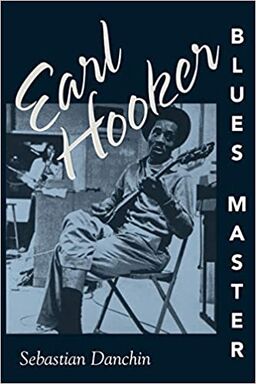
Earl Hooker, blues master
Sebastian DanchinLedig
Sølvberget, 3. etasje Musikk: 1 av 1 ledig
(sortering: 781.643092 HOO)
(sortering: 781.643092 HOO)
Henter eksemplarliste...
Fakta
Laster innhold...
Kopiér til utklippstavle
*0010661839 *003NO-LaBS *00520211116211317.0 *007t *008180125s2001 xx e 0deng d *009 nam 1 *019 $bl *020 $a9781578063079$c300 kr *035 $a(NO-LaBS)11259415(bibid) *08274$qNO-OsBA$a781.643092 *090 $c781.643092$dHOO *1001 $aDanchin, Sebastian$_29295700 *24510$aEarl Hooker, blues master$cSebastian Danchin *260 $aJackson$bUniversity Press of Mississippi$cc2001 *300 $a389 s.$bill. *336 $atekst$0http://rdaregistry.info/termList/RDAContentType/1020$2rdaco *337 $auformidlet$0http://rdaregistry.info/termList/RDAMediaType/1007$2rdamt *338 $abind$0http://rdaregistry.info/termList/RDACarrierType/1049$2rdact *4901 $aAmerican made music series *500 $aIncludes bibliographical references (p. 335-343), discography (p. 345-367), and index. *5208 $aJimi Hendrix called Earl Hooker "the master of the wah-wah pedal." Buddy Guy slept with one of Hooker's slides beneath his pillow hoping to tap some of the elder bluesman's power. And B. B. King has said repeatedly that, for his money, Hooker was the best guitar player he ever met. Tragically, Earl Hooker died of tuberculosis in 1970 when he was on the verge of international success just as the Blues Revival of the late sixties and early seventies was reaching full volume. Second cousin to now-famous bluesman John Lee Hooker, Earl Hooker was born in Mississippi in 1929, and reared in black South Side Chicago where his parents settled in 1930. From the late 1940s on, he was recognized as the most creative electric blues guitarist of his generation. He was a "musician's musician," defining the art of blues slide guitar and playing in sessions and shows with blues greats Muddy Waters, Junior Wells, and B. B. King. A favorite of black club and neighborhood bar audiences in the Midwest, and a seasoned entertainer in the rural states of the Deep South, Hooker spent over twenty-five years of his short existence burning up U.S. highways, making brilliant appearances wherever he played. Until the last year of his life, Hooker had only a few singles on obscure labels to show for all the hard work. The situation changed in his last few months when his following expanded dramatically. Droves of young whites were seeking American blues tunes and causing a blues album boom. When he died, his star's rise was extinguished. Known primarily as a guitarist rather than a vocalist, Hooker did not leave a songbook for his biographer to mine. Only his peers remained to praise his talent and pass on his legend. "Earl Hooker's life may tell us a lot about the blues," biographer Sebastian Danchin says, "but it also tells us a great deal about his milieu. This book documents the culture of the ghetto through the exampl *5208 $aThe life and early death of a South Side guitar genius, the greatest unheralded Chicago blues-maker Jimi Hendrix called Earl Hooker "the master of the wah-wah pedal." Buddy Guy slept with one of Hooker's slides beneath his pillow hoping to tap some of the elder bluesman's power. And B.B. King has said repeatedly that, for his money, Hooker was the best guitar player he ever met. Tragically, Earl Hooker died of tuberculosis in 1970 when he was on the verge of international success just as the Blues Revival of the late sixties and early seventies was reaching full volume. Second cousin to *599 $a300 kr *60014$aHooker, Earl$d1929-1970$_22945700 *650 4$aBiografier$_10033200 *650 4$aBlues$_10024500 *830 0$aAmerican made music series$_23130700 ^